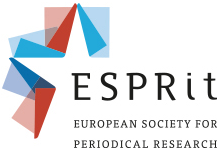Call for papers: Two Panels at NeMLA 2018
Northeast Modern Language Association (NeMLA)
The 49th Annual Convention
Pittsburgh, Pennsylvania
April 12-15, 2018
Female Editorship in Italy and the Trans-Formation of the Public Sphere
This roundtable is part of the 49th annual Northeast Modern Language Association (NeMLA) convention which will take place in Pittsburgh, Pennsylvania from the 12th until the 15thof April 2018.
We wish to outline possible avenues for theoretical reflection on the connections between the periodical press in Italy and the participation of women in the public sphere. Recent scholarship has defined periodical studies as a vibrant field of research which aims to explore the role of the press in the dissemination of knowledge, the circulation of ideas and the formation of culture (Jack Censer, 1994; Pierre Rétat, 2001; Hilary Fraser, 2003). Nevertheless, the participation of Italian women editors in the social, political and cultural discourse of their country and of Europe as a whole remains largely unexplored (Elena Brambilla, 2013). In fact, during the second half of the 18th century, the rise of the press in the Veneto region defined a new position for women’s access to politics and culture. Women such as Elisabetta Caminer Turra and Gioseffa Cornoldi became editors of monthly periodicals in order to create a space for representation, information and cultural mediation.
In the 19th century, journals and periodicals became increasingly important mainly due to the tumultuous period of the Risorgimento when women editors such as Cristina Trivulzio di Belgiojoso and Giovanna Bertòla Garceà played a prominent role in Italy’s struggle for independence. After the country’s unification, women continued to have a strong presence in the press industry either as advocates of female education (e.g. Sofia Bisi Albini) or as proponents of labor rights (e.g. Emilia Mariani). By taking into account the larger sociopolitical context in which Italian women developed their editorial activities, this roundtable will provide new insights into the main characteristics and the impact of their journals. Last but not least, special focus will be set on the transnational character of the press and the contribution of women editors in taking the Italian language and culture beyond the borders (e.g. in Europe, in America and around the world).
Deadline: Scholars at any stage of their research are welcome to submit their abstracts (100-250 words) before the 30th of September 2017. Submissions for this panel can be sent via the convention’s website and not by e-mail to the organizer: https://www.cfplist.com/nemla/Home/S/16723
The Presence of Women Editors in the Press Industry (1850-1950)
This panel examines the active participation of women in the public dialogue through the prism of their periodical publications. The rise of the periodical press has been recognized as a key factor in the formation of the public sphere in the nineteenth century (Habermas 1962). Studies of twentieth-century editorship, however, tend to take the institutionalization of editorship for granted. Male editors are often known by name, and they are studied in the light of their impact on the socio-political landscape of their time. Historically, however, editorship (and women’s editorship in particular) was often anonymous or pseudonymous and even explicitly staged as performance. Therefore, this panel encourages a thorough study of the common strategies and the cross-cultural networks that women editors developed in order to make their voice heard. More particularly, this panel outlines possible avenues for theoretical reflection on editorship by shedding light on periodical publications across linguistic, socio-cultural and historical boundaries. Transnational perspectives on female editorship are particularly welcome because they offer a comparative viewpoint and a complementary insight into women’s determination to position themselves in the public arena as makers of culture, arbiters of social values and proponents of their rights. Last but not least, this panel draws attention to the influence that female editorship exerted on the political, cultural, and aesthetic evolution which would come to shape and define modernity.
Deadline: Scholars at any stage of their research are welcome to submit their abstracts (100-250 words) before the 30th of September 2017. Submissions for this panel can be sent via the convention’s website and not by e-mail to the organizer: https://www.cfplist.com/nemla/Home/S/16676
